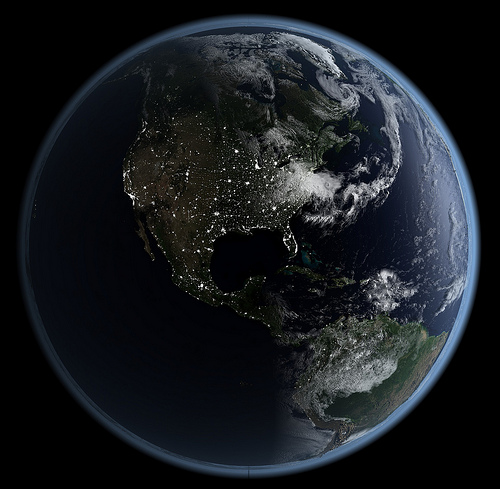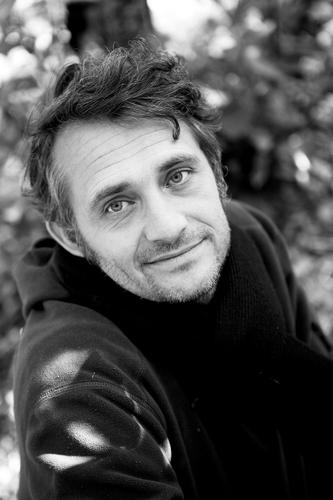Preface
Our mono-cultural worldview is literally preventing us from understanding the deeper causes of our multiple crises. Author Andreas Weber, in the below essay, gives us a glimpse of the different scientific paradigm now coming into focus. He calls it “Enlivenment,” because the new sciences are revealing organisms to be sentient, more-than-physical creatures that have subjective experiences and produce sense. Weber sees Enlivenment as an upgrade of the deficient categories of Enlightenment thought – a way to move beyond our modern metaphysics of dead matter and acknowledge the deeply creative processes embodied in all living organisms. The framework of Enlivenment that Weber outlines is a promising beginning for all those who stand ready to search for real solutions to the challenges of our future.
Introduction
This essay proposes a new perspective on the interplay of nature, humans and economy. It tries to develop a set of alternatives around some basic assumptions our current worldview is built upon. The position taken here will be called "Enlivenment,“1 because its central thesis is that we have to reconsider "life“ and "aliveness“ as fundamental categories of thought. Enlivenment tries to supplement – not to substitute – rational thinking and empirical observation – the core practices of the Enlightenment position – with the "empirical subjectivity“ of living beings, and with the "poetic objectivity“ of meaningful experiences.
I argue that the biggest obstacle to the vexing questions of sustainability (itself a very elastic term with multiple and conflicting meanings) is the fact that science, society and politics have for the last 200 years lost their interest in understanding actual, lived and felt human existence. Scientific progress – and all explanations of biological, mental and social processes – is based on the smallest possible building blocks of matter and systems. It advances through analyses that presume that evolution in nature is guided by principles of scarcity, competition and selection of the fittest. To put it in provocative terms, one could say that rational thinking is an ideology that focuses on dead matter. Its premises have no way of comprehending the reality of lived experience. Should it be so surprising, then, that the survival of life on our planet has become the most urgent problem?

Earth, a rendering. Photo credit: Kevin M. Gill. Used under Creative Commons license.
Based on new findings predominantly in biology and economics, I propose here a different view. I argue that lived experience, embodied meaning, material exchange and subjectivity are key factors that cannot be excluded from a scientific picture of the biosphere and its actors. A worldview that can explain the world only in the "third person,“ as if everything is finally a non-living thing, denies the existence of the very actors who set forth this view. It is a worldview that deliberately ignores the fact that we are subjective, feeling humans – members of an animal species whose living metabolisms are in constant material exchange with the world.
In the vision of the world that I propose here, we human beings are always part and parcel of nature. But this nature is much more like ourselves than we might imagine: It is creative and pulsing with life in every cell. It is creating individual autonomy and freedom by its very engagement with constraints. On an experiential level, as living creatures on this animate earth, we can understand or “feel” nature’s forces if only because we are made of them.
I propose here a new approach to understand our “sustainability dilemma” by urging that we embrace a new cultural orientation towards the open-ended, embodied, meaning-generating, paradoxical and inclusive processes of life. To some, this may sound as if I am proposing a new naturalism, the view that everything is composed of natural entities. But if so, it would be a naturalism of second order that takes into account that nature is not a meaning-free or neutral realm, but is rather a source of existential meaning that is continuously produced by relations between individuals, producing an unfolding history of freedom.

Every living organism has a rhythm and a connection to the greater world around it. Photo credit: UnderClassRising.
This essay is meant as a first step to probe the terrain. It tries to substitute the “bioeconomic principles” that are guiding so many of our economic, political, educational, and private decisions today, with new “principles of enlivenment”. These are based on the observation that we are living in a biosphere, an unfolding process of natural freedom, and that as humans we are not only capable of directly experiencing this aliveness, but we also need to experience it ourselves. The experience of being alive is a basic human requirement that connects us to all living organisms and to “nature” (often misunderstood as something apart from us). Acknowledging this existential need is not only important for the future progress of the biological sciences; it is imperative to our future as a species on an endangered planet. Our inability to honor “being alive” as a rich, robust category of thought in economics, public policy and law means that we do not really understand how to build and maintain a sustainable, life-fostering, or enlivened, society.
Enlivenment is not an arcane historical or philosophical matter but a set of deep ordering principles for how we perceive, think and act. If we can grasp enlivenment as a vision, we can begin to train ourselves to see differently and approach political struggles and policy with a new perspective. The political consequences of adopting such an approach, which I call “policies of enlivenment,” are far-reaching. Embracing a non-dualistic viewpoint allows for more inclusion and cooperation because there is no disjuncture between “rational theory” and social practice; the two are intertwined.
At the same time this perspective allows for a deeper acknowledgment of the unavoidable messiness of life – conflicts, bad timing, shortcomings, etc. – for which rules of negotiation and accommodation have to be cultivated. The freedom that the Enlightenment has sought to advance is the individual’s personal autonomy to be one’s own master. The freedom that the Enlivenment seeks to advance is our freedom as individuals and groups to be “alive-in-connectedness” – the freedom that comes only through aligning individual needs and interests with those of the larger community. Only this integrated freedom can provide the power to reconcile humanity with the natural world.
1 Kudos to Heike Löschmann of Heinrich-Böll-Foundation, Berlin, who in her customary talent of treating the most serious things with a light touch, coined this term in an informal talk in the presence of the author, on November 15, 2012.
##
This essay, "Enlivenment: Towards a Fundamental Shift in the Concepts of Nature, Culture, and Politics,” by Andreas Weber was recently published by the Heinrich Boell Foundation. It is also available to read here on Shareable. Enjoy!
Introduction
Chapter 1
Chapter 2
Chapter 3
Chapter 4
Chapter 5
Chapter 6
Chapter 7









